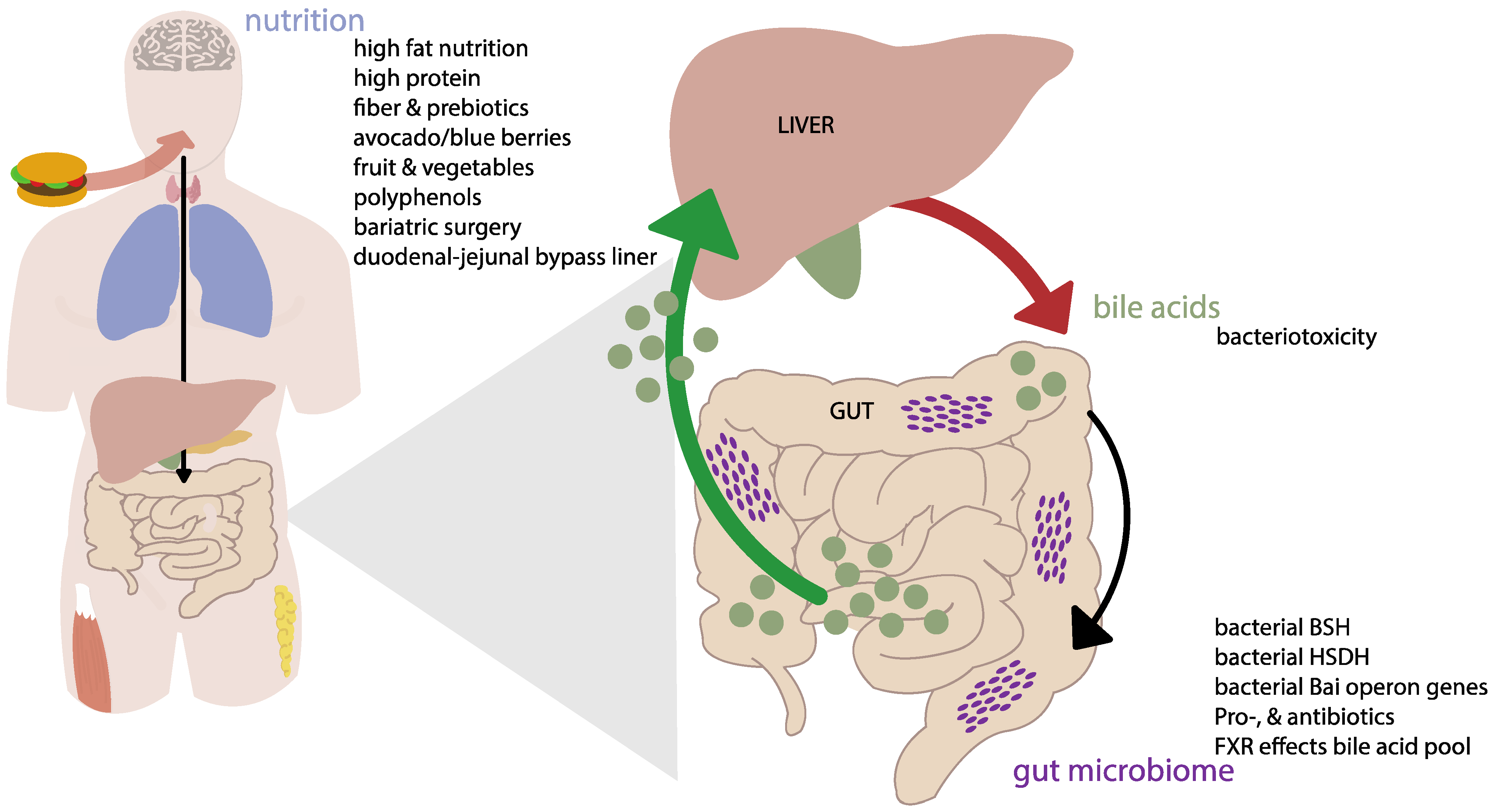💡 The potential role of the gut microbiome and bile acids in type 2 diabetes mellitus (T2DM) has been revealed in this study, with a special reference to low bacterial alpha diversity. Certain bile acid effects on gut bacteria concern cytotoxicity, or in the case of the microbiome, bacteriotoxicity. Reciprocally, the gut microbiome plays a key role in regulating the bile acid pool by influencing the conversion and (de)conjugation of primary bile acids into secondary bile acids.
📍 Direct Effects of Bile Acids on the Microbiome:
📌 Unconjugated bile acids, particularly deoxycholic acid (DCA), exhibit bactericidal action through membrane damage, altering microbiome composition.
📌 The amphipathic nature of bile acids contributes to antibacterial activity, impacting bioenergetic processes and causing intracellular toxicity.
Unconjugated bile acids are more toxic than conjugated ones due to their ability to pass membranes passively.
📌 Bile acid supplementation, such as cholic acid, induces taxonomic changes in the gut microbiome, favoring bile acid-metabolizing phyla (e.g., Firmicutes) and reducing bile acid-intolerant bacteria.
📍 Effects of Bile Acid Withdrawal on the Microbiome:
📌 Bile acid sequestrants disrupt the enterohepatic cycle, influencing microbial diversity and preventing shifts in specific bacterial families.
Studies with sevelamer and cholestyramine show alterations in microbiome composition, with potential therapeutic implications.
📌 Reciprocal Regulation: Gut Microbiome Influencing Bile Acids:
Bacterial enzymes, such as bile salt hydrolases (BSHs), hydroxysteroid dehydrogenases (HSDHs), and enzymes in the bile acid-inducible (Bai) operon, play key roles in bile acid conversion.
📌 Probiotics, like Lactobacillus species, can influence bile acid profiles, affecting insulin sensitivity.
📌 Antibiotics, such as vancomycin, can alter microbiota diversity, peripheral insulin sensitivity, and bile acid dihydroxylation.
📌 Fecal microbial transplantation (FMT) modulates bile acid metabolism, with donor characteristics influencing recipient outcomes.
📍 Nutritional Impact on Gut Microbiome and Bile Acids:
📌 Macronutrients, particularly fatty meals, significantly impact postprandial bile acid responses.
📌 Dietary fiber and prebiotics, like lactulose, influence microbial composition and reduce secondary bile acid production. Specific food items, such as avocados, blueberries, and walnuts, alter fecal bile acid concentrations and microbial abundances.
📌 The Mediterranean diet positively affects gut microbiome composition, reducing fecal bile acids.
📍 Bariatric Surgery Effects:
📌 Bariatric surgery, especially Roux-en-Y gastric bypass (RYGB), alters bile acid levels and gut microbiome composition, contributing to metabolic improvements.
📌 Laparoscopic sleeve gastrectomy and duodenal–jejunal bypass liner (DJBL) also impact fecal bile acids and bacterial diversity.
The gut microbiome and bile acids are integral components of the gut–liver axis, and their interaction is homeostatic under normal conditions. Dysbiosis occurs in various pathological conditions, including obesity, type 2 diabetes (T2DM), Western lifestyle, and antibiotic treatment. Higher gut microbiome diversity is associated with lower levels of secondary bile acids.
Link to the article : http://tinyurl.com/y695975b
